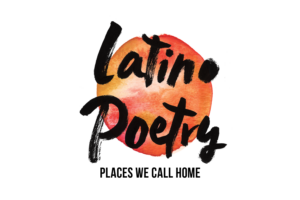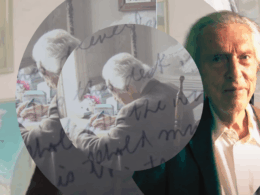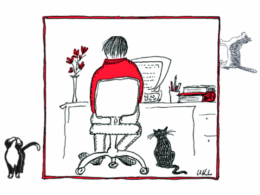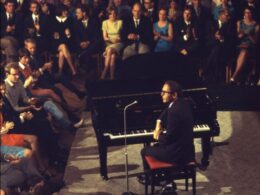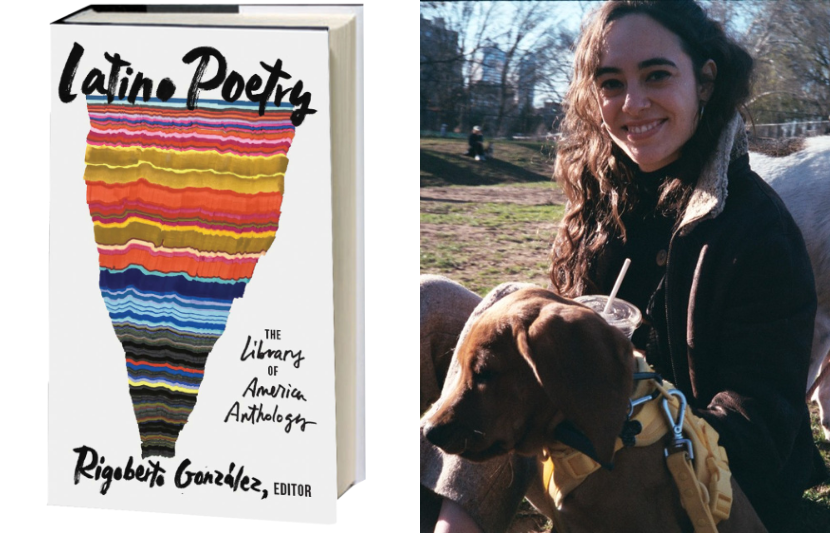
Latino Poetry: The Library of America Anthology (September 2024) and LOA Latino Poetry Project Fellow Susana Plotts-Pineda
This October, Letras Latinas, the literary initiative at the University of Notre Dame’s Institute for Latino Studies, interviewed Library of America Fellow Susana Plotts-Pineda about her work on Latino Poetry: Places We Call Home, LOA’s multifaceted public humanities initiative coming in 2024–2025. The in-depth conversation explores the project’s overarching goals, its partnerships with celebrated poets such as Ada Limón and Richard Blanco, and how libraries and community organizations across the country can get involved.
Talking about the rich and multifaceted Latino poetic tradition, Plotts-Pineda says:
These poems encompass an intricate network of political and social histories, about labor, ecology, exile, about the role of immigrants in America and about the role of America in the world, that I feel are important for Americans of all walks of life to think about. This is not to imply that poetry should be educational or at the service of politics, but rather that, as repositories of experience, voice, action, and questioning, these poems can unlatch new ways of looking at our past and our present by dissolving official or received narratives or orthodoxies.
I also think that because so many of the poets in this tradition were so immersed in their communities, in having an embodied and active approach to poetry, in dissolving the boundaries between art, life, and social action, that it feels like the right way to pay homage to them is to support libraries and arts organizations in helping to bring poetry off the page and into their communities.
To that end, we’re inviting libraries, museums, and other cultural nonprofit institutions to apply for grants of $1,200 to host public programs centering Latino poems and poets. Click here to apply for funding by January 5, 2024, and for more information and updates, visit latinopoetry.org or subscribe to this mailing list.
Elsewhere in the interview, Plotts-Pineda described her day-to-day in the LOA offices:
On a given day, I might be working on outreach, communicating with partner institutions, setting up readings and interviews with poets for our upcoming media archive, commissioning public humanities resources, creating project timelines, translating, or contributing to a series of editorial tasks. I enjoy a lot of aspects of the fellowship, but I think the opportunity to communicate directly with poets I admire has been a really wonderful part of it.
She also shared insight into her own artistic and poetic practice:
When I was younger, I was bouncing between languages and cultural contexts, and I think writing felt like a place where I could express myself in my own terms and in my own time. As I got older, I began seeking more embodied, collective forms of artmaking and became interested in theater and performance. In the past few years, I’ve continued to pursue performance and film in different forms, and I’ve come to understand that even when I’m writing for the stage or working on a film project, everything stems from the idea of poetry as an elemental unit or unifying concern–but I’ve also returned to the page in a very direct way.
Overall, I usually make work that is, in some way, research-based and concerned with archives, history, and the idea of “collaging” or putting together disparate mediums and eras, but that also engages with the speculative and with genre itself in playful or indirect ways.
Read the full interview on Letras Latinas Blog 2.
—
About the Project
For nearly five centuries, the rich tapestry of Latino poetry has been woven from a wealth of languages and cultures. With distinctive rhythms, lyricism, and candor, and nuanced understandings of place, history, and origin, Latino poets have brought dazzling insight to what it means to make a home in America.
Recognition of the beauty and power of this tradition has grown in recent years, with Latino poets receiving two national and twelve state Poet Laureateships, a Pulitzer Prize, and three National Book Awards. At the same time, the perennial questions confronted by Latino poets—of exile and belonging, language and identity, struggle and solidarity, and labor and landscape—have become ever more urgent.
What does Latino poetry reveal about America? How might it help us imagine a more just, joyful, and capacious future? Places We Call Home seeks to foster nationwide conversation on this vital literature through a groundbreaking new anthology edited by Rigoberto González, events around the country, an online media archive, and a wealth of library resources meant to spur in-depth reflection and discussion on key figures and themes.
Funded with generous support from the National Endowment for the Humanities, Places We Call Home is directed by Library of America and presented in partnership with the National Association of Latino Arts and Cultures; the Academy of American Poets; Cave Canem; Poetry Society of America; and the National Book Foundation, among others.
